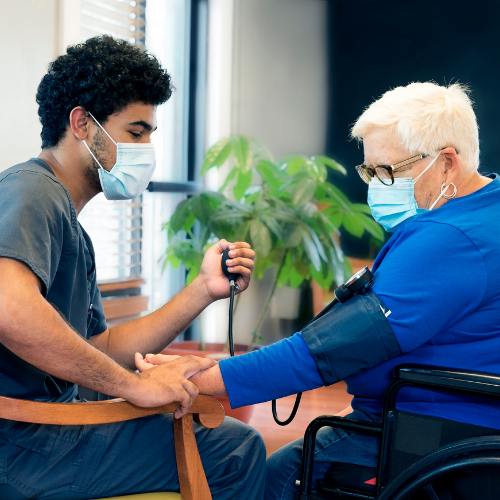Top Online Courses for CNAs: Requirements for Healthcare Professionals

If you're a Certified Nursing Assistant (CNA) looking to advance your career and stay up-to-date with the latest practices in the field, continuing education is a must. Fortunately, there are many online courses available that can help you meet your continuing education requirements while expanding your knowledge and skills.
The most popular online courses for CNAs include:
- Client's Rights, HIPAA, and Elder Abuse Prevention - One of the most important aspects of being a healthcare provider is understanding and respecting your patients' rights. This course covers topics such as informed consent, privacy, and confidentiality, as well as providing an overview of HIPAA regulations. It also teaches strategies for preventing elder abuse and neglect, which is unfortunately all too common in healthcare settings.
- Maintaining a Clean and Healthy Environment (Infection Control) - Infection control is crucial for maintaining the health and safety of patients and healthcare workers alike. This course covers the basics of infection control, including hand hygiene, proper use of personal protective equipment (PPE), and cleaning and disinfection protocols. It also covers specific infection control practices for different types of settings, such as hospitals, long-term care facilities, and home care.
- What does it Mean to be a Professional Caregiver? - Being a professional caregiver means more than just providing physical care to patients. This course explores the qualities and skills that make a great caregiver, including empathy, communication, and teamwork. It also covers ethical considerations for healthcare providers, such as maintaining patient confidentiality and avoiding conflicts of interest.
- Body Mechanics and Injury Prevention - As a CNA, you'll spend a lot of time on your feet and lifting and moving patients. This course teaches proper body mechanics and techniques for preventing workplace injuries. It covers topics such as lifting and transferring patients, preventing falls, and managing back pain.
- Assisting with Independent Living Through IADLs - Instrumental activities of daily living (IADLs) are tasks that are necessary for independent living, such as managing finances, shopping, and transportation. This course teaches CNAs how to assist patients with IADLs, helping them to maintain their independence and quality of life.
- Assisting with Personal Care Through ADLs - Activities of daily living (ADLs) are basic self-care tasks, such as bathing, dressing, and eating. This course covers the fundamentals of assisting patients with ADLs, including techniques for maintaining privacy and dignity. It also covers specific considerations for patients with disabilities or chronic condition
- Medicare Fraud, Waste, and Abuse (FWA) for Direct Care Workers - As a healthcare provider, it's important to understand Medicare regulations and how to prevent fraud, waste, and abuse. This course covers the basics of Medicare FWA, including common types of fraud and how to report suspected violations. It also covers strategies for preventing fraud and protecting patient information.
- Professionalism: Communication, Problem Solving and Cultural Competency - Effective communication and problem-solving skills are essential for healthcare providers. This course teaches CNAs how to communicate effectively with patients and colleagues, as well as how to handle difficult situations and conflicts. It also covers cultural competency, helping CNAs to provide culturally sensitive care to patients from diverse backgrounds.
- Communicating with a person with Dementia - Dementia can make communication with patients challenging, but it's important to maintain effective communication to provide quality care. This course covers strategies for communicating with patients with dementia, including how to understand their needs and preferences and how to use nonverbal communication.
- Emergency Procedures - In healthcare settings, emergencies can happen at any time. This course covers emergency preparedness and response, including basic life support (BLS) techniques and how to handle emergencies such as cardiac arrest, choking, and severe bleeding. It also covers specific considerations.
Taking online continuing education courses with Lifework Education is incredibly easy and user-friendly. Their Learning Management System (LMS) allows you to access all courses and learning materials with just a few clicks. All you need to do is register for the courses you want to take, and you can begin your learning journey right away. The LMS tracks your progress and certification status, so you can easily monitor your performance and see how much you've learned. Additionally, their comprehensive reporting and data management system allows you to view enrollment and scores, making it easy to keep track of your achievements.
Another great feature of Lifework Education's online courses is their flexibility. You can access the courses anytime, anywhere, as long as you have an internet connection. This means you can fit your learning around your existing schedule, whether you're working full-time or juggling other commitments. You also have the freedom to work at your own pace, so you can take your time to absorb the material and ensure that you fully understand it.
Overall, the ease and convenience of Lifework Education's online courses make them an excellent choice for CNAs and other healthcare professionals looking to advance their careers and meet their continuing education requirements.